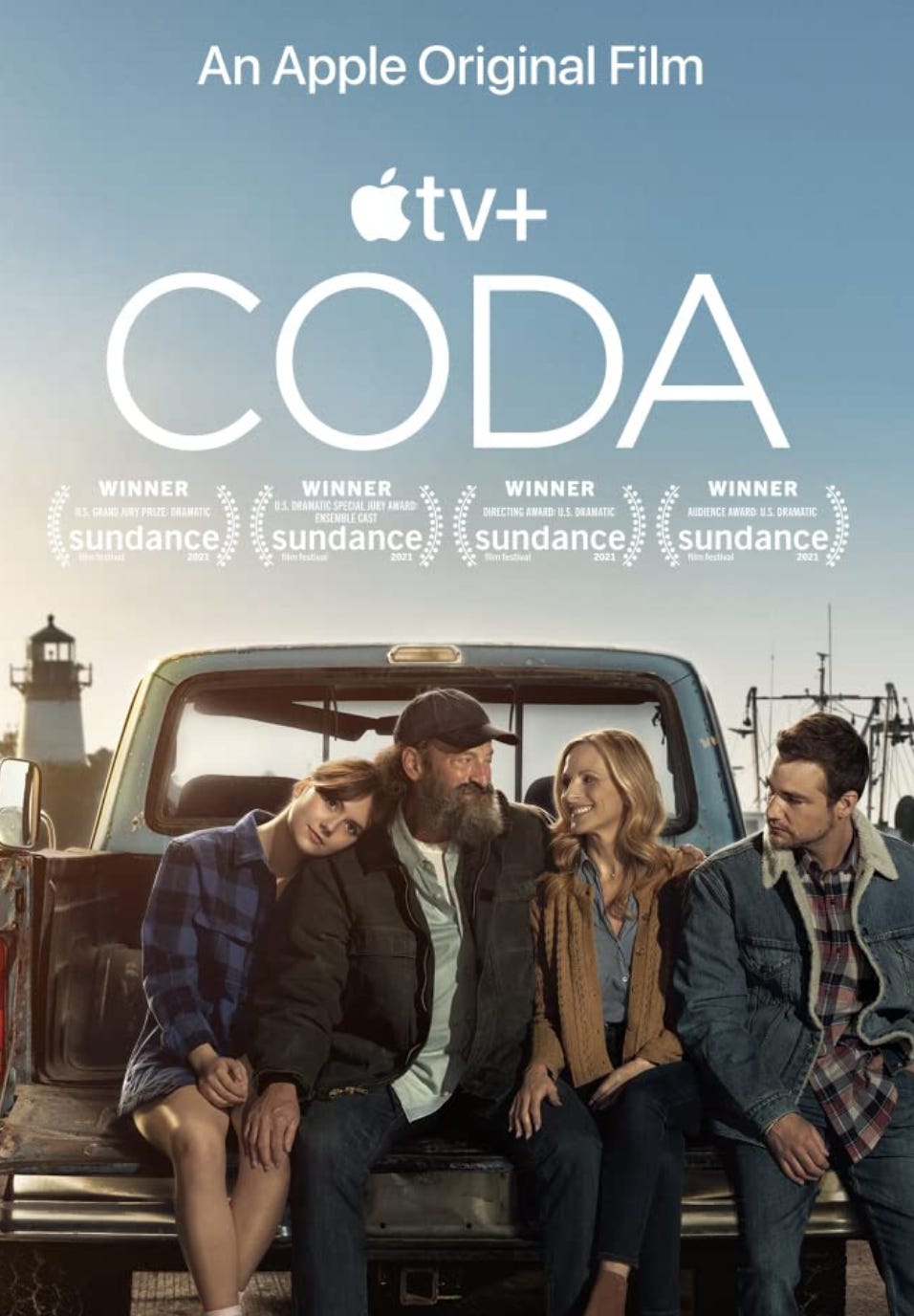Substack post: A little story about dreams
At the recommendation of my friend Christine, I watched the enchanting and inspiring movie CODA over the weekend. I loved it, and was reminded of just how much of a difference mentorship can make in our lives and the dreams we pursue (or don’t). So I thought I’d share this story, and the encouragement I’ve carried with me for years: yes, you CAN do the thing you love. (Also watch CODA just as soon as you can. It’s absolutely wonderful – sweet and inspiring.)
I started my college career as an art major, but was unsurprisingly terrible at the details needed to succeed. I switched to advertising and did no better – I’m as good at marketing as I am remembering six-digit color codes. So I registered for a Basic News class, just to see if journalism might be for me. Our professor, Dr Mann, was a fatherly gentleman with a penchant for using his eyeglasses as a prop. He would spin them quickly between two fingers while making an important point, jab them in the direction of his students, and use them to direct our attention to his sprawling scrawl on the whiteboard. In moments of contemplation, he rested one earpiece of his glasses on his bottom lip. He perched them on the end of his nose for reading our pieces, in order to better glance over them with piercing blue eyes and tell us exactly what he thought of our shoddy reporting. He had completely white hair and a close-cropped white beard, and he loomed over everything looking for typos. He dressed like the cinematic version of an overworked newspaper editor – rumpled button-down shirts, unpressed khakis and thick-soled brown shoes, ready to pound pavement.
I am the sort of nerd who took Honors-level humanities classes for the fun of it, and I saw immediate overlap between the epics of Gilgamesh and Homer and the big ideas of modern-day journalism. In both Humanities and Basic News, we discussed ethics, power, philosophy, truth, mythology. We wrestled big ideas out of small stories, no detail of a forgotten legend was too musty to facilitate a discussion of art and meaning.
I loved it.
In the hallway was a giant whiteboard titled “The First Amendment Board” on which hungry, idealistic journalism students scrawled sometimes funny, often ridiculous and occasionally poignant or controversial ideas. Debates were welcomed, argumentation was a virtue, obsession was rewarded.
Stories were good but stories with data to back them up were better. The parables of my childhood church-going made so much sense – this wasn’t an ancient crutch for a pre-literate people but an essential aspect of learning. I loved this new world so much, I quaked at the thought of turning in stories for Basic News; of having Dr Mann lean over my computer and crack apart my paragraphs with one vehement gesture of his infamous eyeglasses. Our first story assignments were silly ones: interview a professor about his teaching style, ask a student about the scheduled talent show. Most Basic News stories were so bad they didn’t even get printed in our student paper, and still others were essentially rewritten by our talented and overworked editorial team. But I turned in my first story and spent the weekend trembling over it.
When I walked into Basic News on Monday afternoon, I knew I’d have to get critiqued, as we all did. I wanted to be a writer, a storyteller, maybe more than I’d wanted anything in my life. Dr Mann perched his glasses on the end of his nose and looked at each of us with kind chagrin. “I’m going to speak to each of you privately about your pieces,” he said. “You may work on your next story assignment while you wait.”
He started around the room. Some students he stood behind and gave a couple of cursory notes, “always use ‘said’”, or “this comma does not belong.” Others he leaned over and gave concerned glances, reconfiguring entire story arcs and cutting out whole paragraphs. A few he knelt down beside, and although I couldn’t hear, I imagined him saying something along the lines of “Maybe you belong in the math or science departments” or “Have you considered quitting university and going to work as a welder?”
By the time he made it to me I’d made up a hundred stories in my mind, all of which ended with me choosing a new career path, likely in manual labor, probably at a steel mill. Dr Mann knelt down beside my desk and toyed with his spectacles, placing them thoughtfully on his bottom lip and then on top of his head. He began with a couple of simple corrections. I nodded, trying not to let him see my intensity, running high and swollen like a mountain creek in Spring.
“Dani,” he said, looking at me over the tops of his glasses, which he’d now perched on the end of his nose. “The point is: you can write.”
He must’ve seen my eyes widen in surprise, because he whipped off those emphatic glasses and jabbed them at my computer screen with a flourish. “This. This is good.” He said with each decisive stab toward my words. “Keep it up.”
That day I marched into the academic advisor’s office and announced I was switching my major to Print Journalism. I wanted to write, but more than anything, I’d been told I could.
